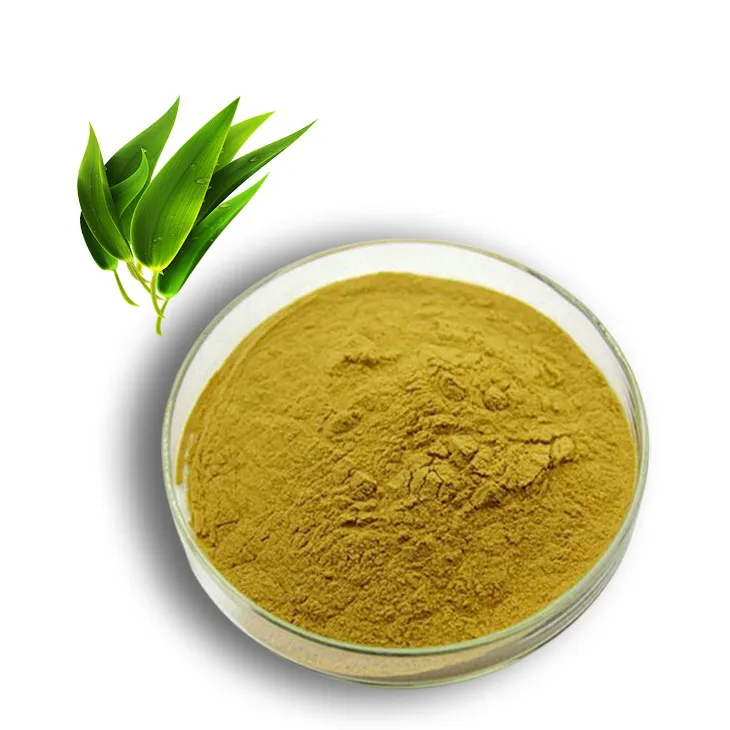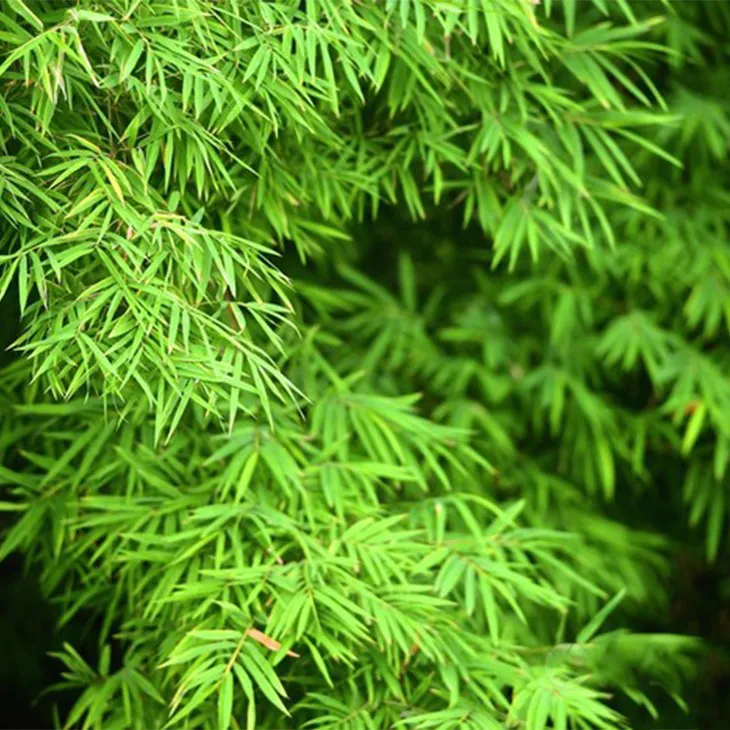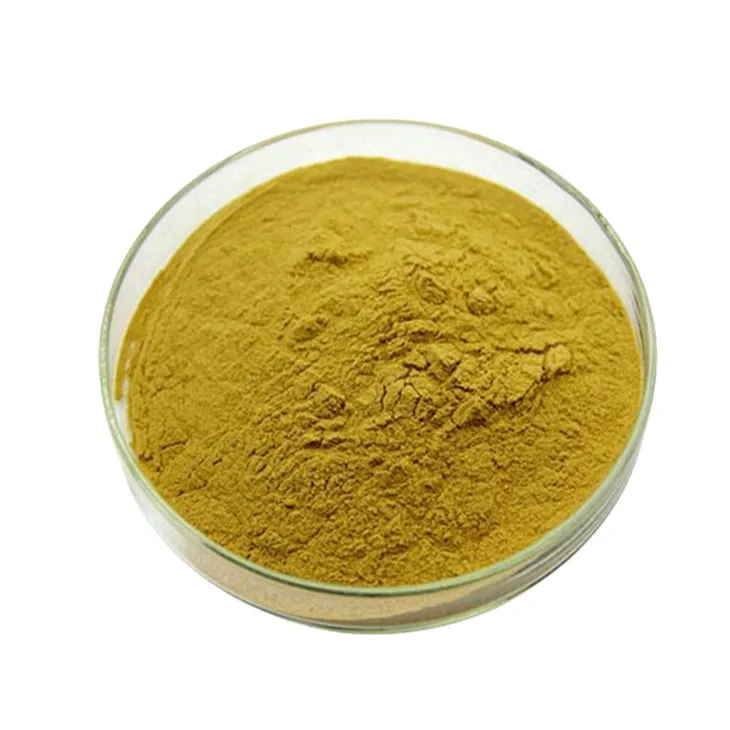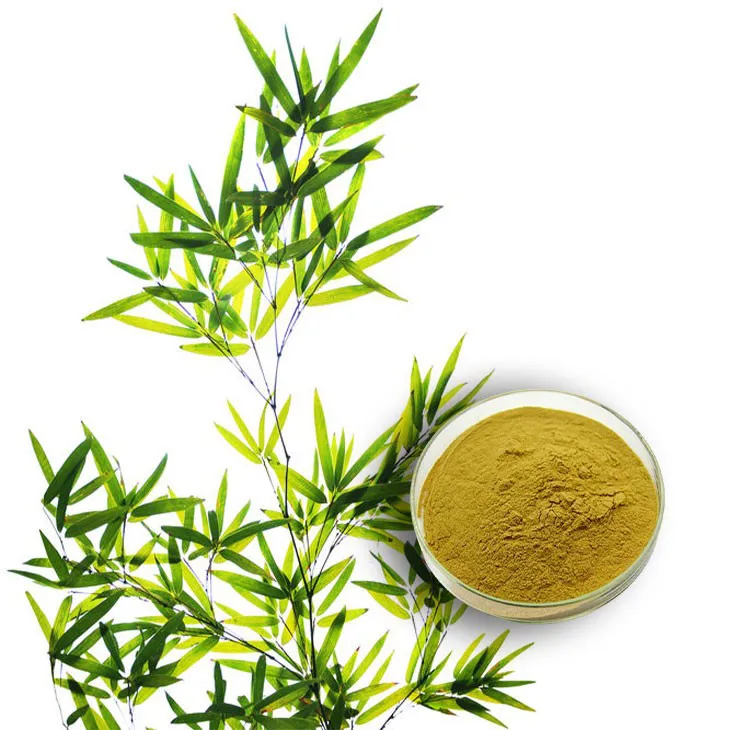- 0086-571-85302990
- sales@greenskybio.com
Mature Bamboo Leaf Flavor and Natural Bamboo Leaf Extract.
2024-11-12

Cultural Significance of Bamboo Leaves
Bamboo has long held a special place in many cultures around the world. In Asian cultures, particularly in China, Japan, and Korea, bamboo is highly revered.
Bamboo in Chinese Culture: In China, bamboo is one of the "Four Gentlemen" in Chinese art, along with plum, orchid, and chrysanthemum. Bamboo symbolizes integrity, elegance, and strength. Bamboo leaves are often depicted in traditional Chinese paintings, representing the vitality and grace of nature. They are also used in various traditional festivals. For example, during the Dragon Boat Festival, bamboo leaves are used to wrap zongzi, a traditional rice - filled dumpling. This not only gives zongzi a unique flavor but also connects the food with the cultural significance of bamboo.
Bamboo in Japanese Culture: In Japan, bamboo is associated with simplicity, purity, and harmony. Japanese gardens often feature bamboo, and the sound of bamboo leaves rustling in the wind is considered a calming and soothing element. Bamboo leaves are also used in tea ceremonies in some cases, adding a touch of natural elegance to the ceremony.
Bamboo in Korean Culture: In Korea, bamboo has been used in traditional handicrafts for centuries. Bamboo leaves can be used to make decorative items, and they also have a certain symbolic meaning related to perseverance and growth.

The Unique Flavor of Mature Bamboo Leaves
Characteristics of the Flavor: The flavor of mature bamboo leaves is a complex and unique blend. It has a fresh, green, and slightly grassy aroma. When tasted, it can bring a sense of coolness and a touch of earthiness. This flavor is not overpowering but rather subtle and refined.
Factors Affecting the Flavor:
- Season: The season in which the bamboo leaves are harvested can significantly affect their flavor. Leaves harvested in spring may have a more tender and delicate flavor compared to those harvested in summer or fall when they are more mature.
- Geographical Location: Bamboo grown in different regions may have slightly different flavors due to variations in soil, climate, and altitude. For example, bamboo leaves from mountainous areas may have a more pronounced earthy flavor compared to those from low - lying areas.
- Processing Methods: How the bamboo leaves are processed also plays a role. Drying methods, whether it is natural sun - drying or artificial drying, can influence the final flavor. Additionally, if the leaves are fermented or not can also lead to different flavor profiles.
Uses in Culinary Arts:
- In some Asian cuisines, mature bamboo leaves are used as a wrapping material for various foods. As mentioned before, zongzi in China is a prime example. The bamboo leaf imparts its flavor to the rice and other fillings during the cooking process, creating a unique taste experience.
- Bamboo leaves can also be used to make tea. Bamboo leaf tea has a light, refreshing flavor and is believed to have certain health benefits, which will be discussed later. The tea made from mature bamboo leaves has a more robust flavor compared to that made from young leaves.
- In some regions, bamboo leaves are used as an ingredient in soups or stews. They add a unique flavor and a touch of natural freshness to the dish.

The Science behind Natural Bamboo Leaf extract
Composition of Bamboo Leaf extract: Natural Bamboo Leaf extract is rich in various bioactive compounds. It contains flavonoids, phenolic acids, and polysaccharides. Flavonoids, such as orientin and isoorientin, are known for their antioxidant properties. Phenolic acids, like caffeic acid and ferulic acid, also contribute to the antioxidant and anti - inflammatory effects of the extract. Polysaccharides in bamboo leaf extract may have immunomodulatory functions.
Extraction Methods:
- Solvent Extraction: This is a common method. Organic solvents such as ethanol or methanol can be used to extract the bioactive compounds from bamboo leaves. The choice of solvent depends on the solubility of the target compounds and the desired purity of the extract.
- Supercritical Fluid Extraction: Using supercritical carbon dioxide as the extraction medium is an advanced method. It has the advantages of being non - toxic, leaving no solvent residue, and being able to selectively extract specific compounds. However, this method requires more sophisticated equipment and higher costs.
- Water - based Extraction: Water can also be used to extract certain components from bamboo leaves. This method is more environmentally friendly but may result in a lower yield of some bioactive compounds compared to solvent - based methods.
Health - related Properties:
- Antioxidant Activity: The flavonoids and phenolic acids in bamboo leaf extract act as antioxidants, which can scavenge free radicals in the body. Free radicals are unstable molecules that can cause damage to cells and are associated with various diseases such as cancer, heart disease, and aging. By consuming bamboo leaf extract or products containing it, the body's antioxidant defense system can be enhanced.
- Anti - inflammatory Effects: The bioactive compounds in the extract can also reduce inflammation in the body. Inflammation is a natural immune response, but chronic inflammation can lead to many health problems. Bamboo leaf extract may help in alleviating inflammation - related conditions such as arthritis.
- Cardiovascular Health: Some studies suggest that bamboo leaf extract may have a positive impact on cardiovascular health. It may help in reducing blood pressure, improving blood lipid profiles, and preventing the formation of blood clots.

Commercial Applications of Bamboo Leaf Extract
The Cosmetics Industry:
- Bamboo leaf extract is used in cosmetics due to its antioxidant and anti - inflammatory properties. It can be added to skincare products such as creams, lotions, and serums. In these products, it helps in protecting the skin from environmental damage, reducing skin inflammation, and promoting skin health. For example, it can be used to soothe irritated skin and prevent premature aging of the skin.
- Some haircare products also contain bamboo leaf extract. It can improve the health of the hair by strengthening the hair follicles, reducing hair breakage, and adding shine to the hair.
The Food and Beverage Industry:
- In the food industry, bamboo leaf extract can be used as a natural preservative. Its antioxidant properties can help in preventing the oxidation of food, thereby extending the shelf life of products. For example, it can be used in the preservation of oils, fats, and processed foods.
- In the beverage industry, bamboo leaf extract can be added to various drinks. It can enhance the flavor of the drinks while also providing potential health benefits. Bamboo leaf - flavored beverages are becoming more popular, especially in the health - conscious market.
The Pharmaceutical Industry:
- Bamboo leaf extract has the potential to be developed into drugs or dietary supplements. Its health - promoting properties make it a candidate for treating or preventing various diseases. For example, it could be further studied for use in the treatment of cardiovascular diseases or as an anti - inflammatory agent in the form of a pharmaceutical product.
- However, more research is needed to fully understand its pharmacological mechanisms and to ensure its safety and efficacy for medical use.

Conclusion
In conclusion, mature bamboo leaf flavor and natural bamboo leaf extract are both rich in value. The unique flavor of bamboo leaves has been an important part of culinary traditions in many cultures, while the natural bamboo leaf extract has a wide range of potential applications in health, cosmetics, food, and pharmaceutical industries. Understanding their cultural significance, flavor characteristics, scientific composition, and commercial applications can help us better utilize these resources in our daily life and various industries. Continued research on bamboo leaf extract is also necessary to fully explore its potential and ensure its safe and effective use.
FAQ:
What is the unique feature of mature bamboo leaf flavor?
The mature bamboo leaf flavor is characterized by a fresh, green, and slightly earthy aroma. It has a unique freshness that is different from other plant flavors. This flavor is often described as having a calming and natural essence, which may be due to the natural compounds present in the bamboo leaves.
What are the main components in natural bamboo leaf extract?
Natural bamboo leaf extract contains various components such as flavonoids, phenolic acids, and polysaccharides. Flavonoids contribute to its antioxidant properties. Phenolic acids may play a role in anti - inflammatory effects. Polysaccharides can have functions related to immune regulation and moisture retention.
How is the mature bamboo leaf flavor used in the food industry?
In the food industry, the mature bamboo leaf flavor can be used in the production of beverages, such as teas. It can also be added to certain desserts or confectionery items to impart a unique, natural flavor. Some manufacturers may use it in the production of herbal infusions or flavorings for specialty foods.
What are the potential health benefits of natural bamboo leaf extract?
The potential health benefits of natural bamboo leaf extract include antioxidant effects, which can help protect cells from damage caused by free radicals. It may also have anti - inflammatory properties, which could be beneficial for conditions related to inflammation. Additionally, some studies suggest that it may have a role in improving cardiovascular health and enhancing the immune system.
How is natural bamboo leaf extract obtained?
Natural bamboo leaf extract is typically obtained through extraction processes. This may involve using solvents such as ethanol or water to extract the active compounds from the bamboo leaves. The extraction process is carefully controlled to ensure the purity and quality of the extract, and different extraction methods can result in extracts with different compositions and properties.
Related literature
- The Composition and Properties of Bamboo Leaf Extracts"
- "Mature Bamboo Leaves: Flavor and Their Applications in the Food Industry"
- "Health - Promoting Effects of Natural Bamboo Leaf Extract: A Review"
- ▶ Hesperidin
- ▶ Citrus Bioflavonoids
- ▶ Plant Extract
- ▶ lycopene
- ▶ Diosmin
- ▶ Grape seed extract
- ▶ Sea buckthorn Juice Powder
- ▶ Fruit Juice Powder
- ▶ Hops Extract
- ▶ Artichoke Extract
- ▶ Mushroom extract
- ▶ Astaxanthin
- ▶ Green Tea Extract
- ▶ Curcumin
- ▶ Horse Chestnut Extract
- ▶ Other Product
- ▶ Boswellia Serrata Extract
- ▶ Resveratrol
- ▶ Marigold Extract
- ▶ Grape Leaf Extract
- ▶ New Product
- ▶ Aminolevulinic acid
- ▶ Cranberry Extract
- ▶ Red Yeast Rice
- ▶ Red Wine Extract
-
Kupilu Extract
2024-11-12
-
Red Date Extract
2024-11-12
-
Nettle leaf extract
2024-11-12
-
Yohimbine Bark Extract
2024-11-12
-
Chia Seed Powder
2024-11-12
-
Phellodendron Extract
2024-11-12
-
Eyebright Extract
2024-11-12
-
Curcuma Longa Extract
2024-11-12
-
Polygonum multiflorum extract
2024-11-12
-
Astaxanthin
2024-11-12





















